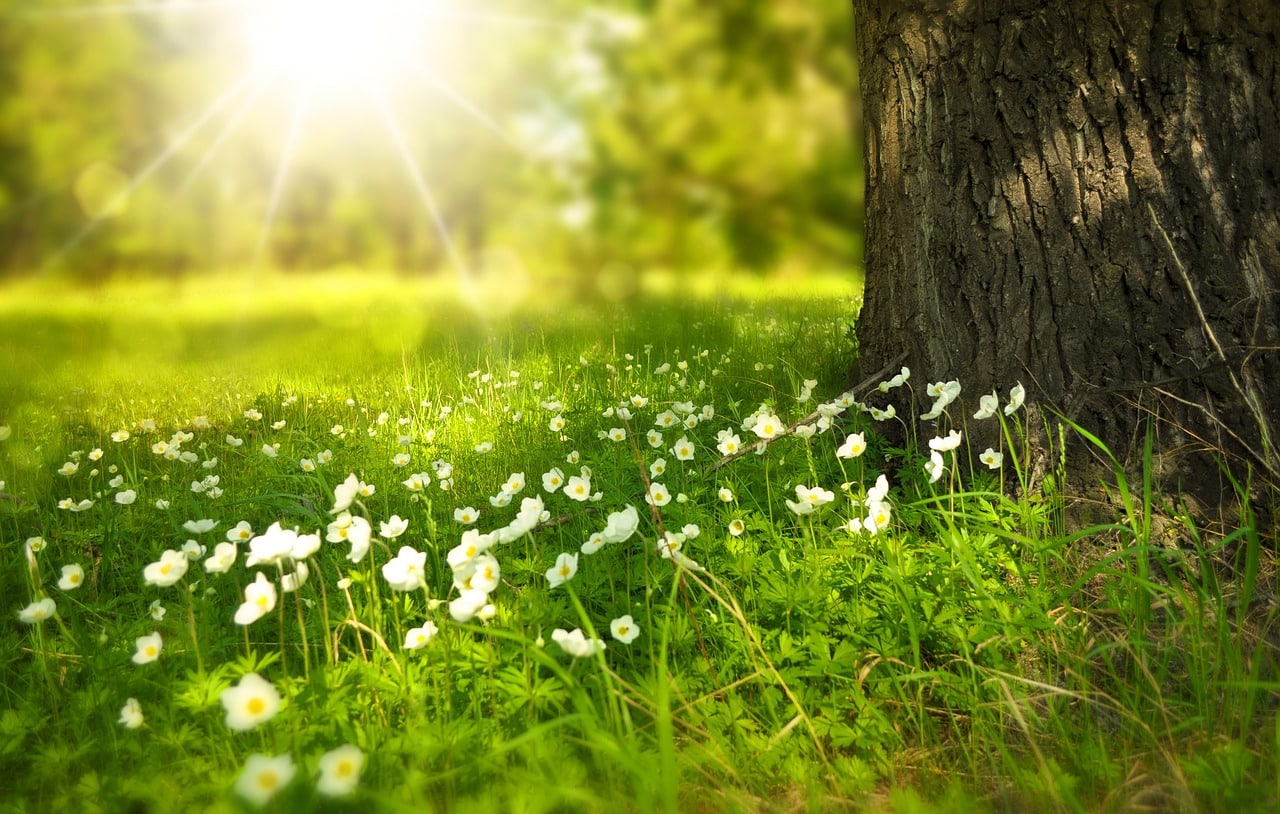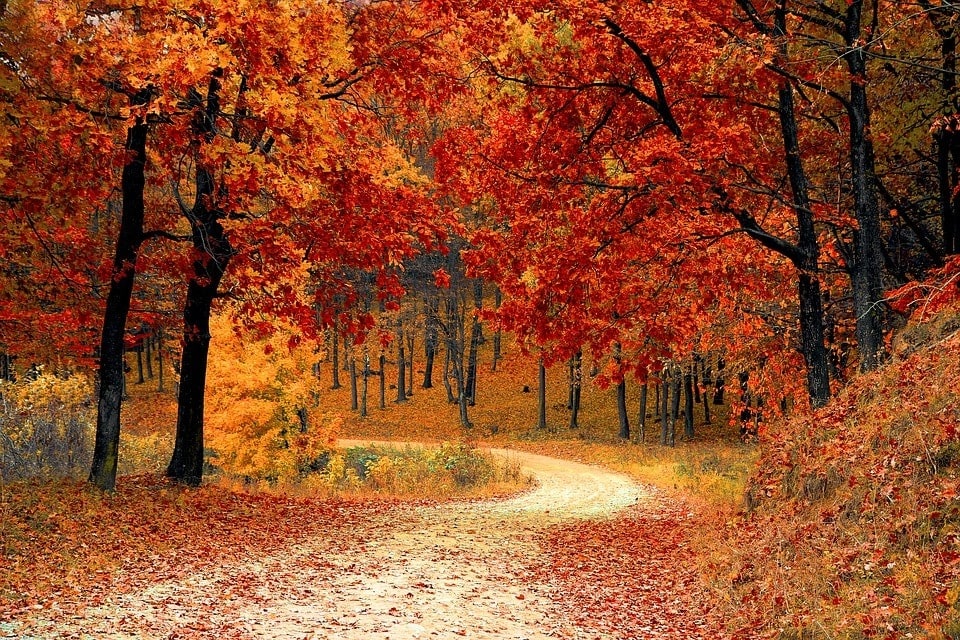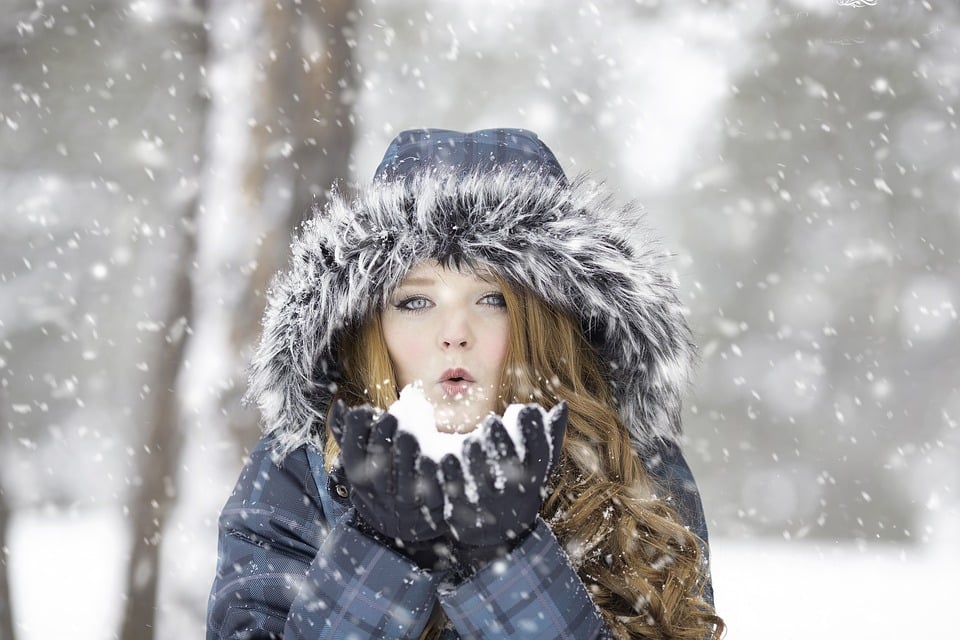
Seasons in Chinese: The Weather, Words and Holidays You Need to Know
Learning the 季节 (jì jié) — seasons in Chinese is more than just knowing how to talk about the weather.
It’s also about discovering the different holidays and traditions in each season and diving deep into Chinese culture.
Now, let me introduce you to the four seasons in Chinese and what they’re like, plus relevant holidays and related vocabulary for each one so you can expand your Chinese conversations.
Contents
- The Four Seasons in Chinese
- Spring Vocabulary in Chinese
- Summer Vocabulary in Chinese
- Autumn Vocabulary in Chinese
- Winter Vocabulary in Chinese
- Why Learn the Seasons in Chinese
- And One More Thing...
Download: This blog post is available as a convenient and portable PDF that you can take anywhere. Click here to get a copy. (Download)
The Four Seasons in Chinese
| Chinese | Pinyin | English |
|---|---|---|
| 春天 | chūn tiān | spring |
| 夏天 | xià tiān | summer |
| 秋天 | qiū tiān | fall |
| 冬天 | dōng tiān | winter |
Spring Vocabulary in Chinese
In 春天, China has warm weather. The average temperature during the daytime is 13 degrees Celsius (55.4 degrees Fahrenheit) and 3 degrees Celsius at night (37.4 degrees Fahrenheit).
But China is a big country, which means different regions can be cooler or warmer than average!
In the North, spring comes late and lasts for less than three months. And in cities like Beijing, there’s barely any difference between spring and winter.
In Southern China, spring gets gradually warmer and the daytime becomes longer. Opposite of the North, the South experiences a beautiful spring (although with a bit of rain here and there).
| Term | Example |
|---|---|
| 春节
(chūn jié) Spring Festival | 春节的时候我回家乡看父母。
(chūn jié de shí hou wǒ huí jiā xiāng kàn fù mǔ.) I go back to my hometown to visit my parents during Spring Festival. |
| 暖和
(nuǎn huo) warm | 今天的天气很暖和吧?
(jīn tiān de tiān qì hěn nuǎn huo ba?) The weather today is warm, isn't it? |
| 过
(guò) to celebrate, to spend | 你每年春节怎么过?
(nǐ měi nián chūn jié zěn me guò?) How do you spend/celebrate Spring Festival every year? |
| 大自然
(dà zì rán) nature | 春天的大自然很美。
(chūn tiān de dà zì rán hěn měi.) The nature in spring is beautiful. |
Summer Vocabulary in Chinese
During 夏天, June and July are the hottest months in China. The places that experience the true summer heat the most are cities. But in August, the temperature starts to drop in preparation for fall.
But perhaps summer is better known in China not for its heat but for its wetness. Summer is the prime time in China for typhoons and summer rains.
The best place to be in summer if you aren’t a fan of the heat is Northern China. In Beijing, the temperature rarely exceeds 32 degrees Celsius (90 degrees Fahrenheit), even in the hottest months.
| Term | Example |
|---|---|
| 热
(rè) hot | 夏天太热了!
(xià tiān tài rè le!) Summer is too hot! |
| 台风
(tái fēng) typhoon | 夏天的台风很多。
(xià tiān de tái fēng hěn duō.) Summer has lots of typhoons. |
| 下雨
(xià yǔ) rain | 夏天的时候经常下雨。
(xià tiān de shí hou jīng cháng xià yǔ.) It often rains in summer. |
| 儿童节
(ér tóng jié) Children's Day | 明天是儿童节。
(míng tiān shì ér tóng jié.) Tomorrow is Children's Day. |
| 端五节
(duān wǔ jié) Dragon Boat Festival | 端五节是我最喜欢的节日。
(duān wǔ jié shì wǒ zuì xǐ huān de jié rì.) Dragon Boat Festival is my favorite holiday. |
Autumn Vocabulary in Chinese
秋天 lasts from September to November in China and is by far one of the most beautiful seasons.
From magnificent views to perfect weather, autumn is one of the best times to travel.
On average, the daily temperature during fall never exceeds 26 degrees Celsius (79 degrees Fahrenheit) in September, 20 degrees Celsius (68 degrees Fahrenheit) in October and 10 degrees Celsius (50 degrees Fahrenheit) in November in Beijing.
| Term | Example |
|---|---|
| 凉快
(liáng kuai) cool | 秋天的天气非常凉快。
(qiū tiān de tiān qì fēi cháng liáng kuai.) The weather in autumn is very cool. |
| 中秋节
(zhōng qiū jié) Mid-Autumn Festival | 中秋节是很重要的节日。
(zhōng qiū jié shì hěn zhòng yào de jié rì.) Mid-Autumn Festival is an important holiday. |
| 月饼
(yuè bing) mooncakes | 中秋节的时候每个人都吃月饼。
(zhōng qiū jié de shí hou měi gè rén dōu chī yuè bing.) Everyone eats mooncakes during Mid-Autumn Festival. |
| 刮风
(guā fēng) windy | 今天风很大。
(jīn tiān fēng hěn dà.) Today, it's pretty windy. |
| 万圣节
(wàn shèng jié) Halloween | 在美国,我们在秋天的时候过万圣节。
(zài měi guǒ, wǒ men zài qiū tiān de shí hou guò wàn shèng jié.) In America, we celebrate Halloween in fall. |
Winter Vocabulary in Chinese
In China, 冬天 is from December to February. And unlike summer, it’s a bit milder in Southern and Central China than in the North.
There’s little snow in winter outside Northern China, and the weather is fairly moist. But due to humidity, the temperature almost always feels colder than it actually is.
What’s known as Tropical China is in the very south of the country, and there, winter basically doesn’t exist. These areas consist of rain forests, islands and beaches, and winter there can even feel warm.
But if you go up to Beijing in the North, winters are cold and dry. They’re also longer. Winter begins in early November and lasts until March!
And if you want to go somewhere extremely cold, visit 哈尔滨 (hā ěr bīn) — Harbin. This city is so cold that it’s known as “Ice City,” where temperatures in January can get to -23 degrees Celsius (-10 degrees Fahrenheit).
| Term | Example |
|---|---|
| 冷
(lěng) cold | 这里太冷了!
(zhè lǐ tài lěng le!) It's too cold here! |
| 下雪
(xià xuě) snow | 北京经常下雪。
(běi jīng jīng cháng xià xuě.) Beijing snows a lot. |
| 滑冰
(huá bīng) ice skating | 冬天的时候我经常去滑冰。
(dōng tiān de shí hou wǒ jīng cháng qù huá bīng.) I usually ice skate during winter. |
| 圣诞节
(shèng dàn jié) Christmas | 圣诞节在冬天到来。
(shèng dàn jié zài dōng tiān dào lái.) Christmas is in winter. |
Why Learn the Seasons in Chinese
- Current seasons aren’t always the same on the other side of the world. Depending on where you live, the season in your country and the current season in a Mandarin-speaking country might be totally opposite. Holidays, school years and school breaks can differ greatly as well.
- Knowing how to discuss seasons makes for great small talk. Whether you want to inquire about summer break plans or simply complain about the miserable weather in your area, seasons can be a common language exchange topic.
- There are tons of references to seasons in Chinese media. Related vocabulary words can help you understand songs like this one by Chopstick Brothers. You can use the language learning website and app FluentU to see how seasons are talked about in other authentic Chinese media formats.
FluentU takes authentic videos—like music videos, movie trailers, news and inspiring talks—and turns them into personalized language learning lessons.
You can try FluentU for free for 2 weeks. Check out the website or download the iOS app or Android app.
P.S. Click here to take advantage of our current sale! (Expires at the end of this month.)
- You’ll know how to pack for your future trip to China. Knowing the seasons will help you prepare for trips to Chinese-speaking countries! Plus, you’ll be able to ask your language partner or tutor about what to pack or what to do when you arrive.
- You’ll deepen your understanding of Chinese culture. Seasons come with 节日 (jié rì) — holidays, like Spring Festival and Mid-Autumn Festival. You’ll be able to learn more about each holiday’s history, traditions and stories with seasonal vocabulary.
Congratulations! You’re now fully equipped to have conversations beyond basic weather.
Start having deeper conversations with Chinese people and learning more about Chinese customs!
And One More Thing...
If you want to continue learning Chinese with interactive and authentic Chinese content, then you'll love FluentU.
FluentU naturally eases you into learning Chinese language. Native Chinese content comes within reach, and you'll learn Chinese as it's spoken in real life.
FluentU has a wide range of contemporary videos—like dramas, TV shows, commercials and music videos.
FluentU brings these native Chinese videos within reach via interactive captions. You can tap on any word to instantly look it up. All words have carefully written definitions and examples that will help you understand how a word is used. Tap to add words you'd like to review to a vocab list.
FluentU's Learn Mode turns every video into a language learning lesson. You can always swipe left or right to see more examples for the word you're learning.
The best part is that FluentU always keeps track of your vocabulary. It customizes quizzes to focus on areas that need attention and reminds you when it’s time to review what you’ve learned. You have a 100% personalized experience.
Start using the FluentU website on your computer or tablet or, better yet, download the FluentU app from the iTunes or Google Play store. Click here to take advantage of our current sale! (Expires at the end of this month.)










